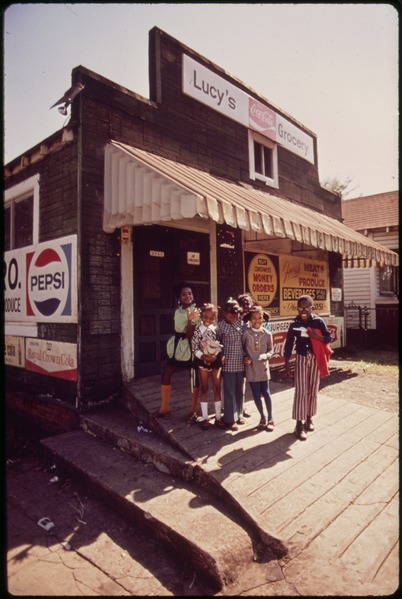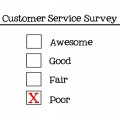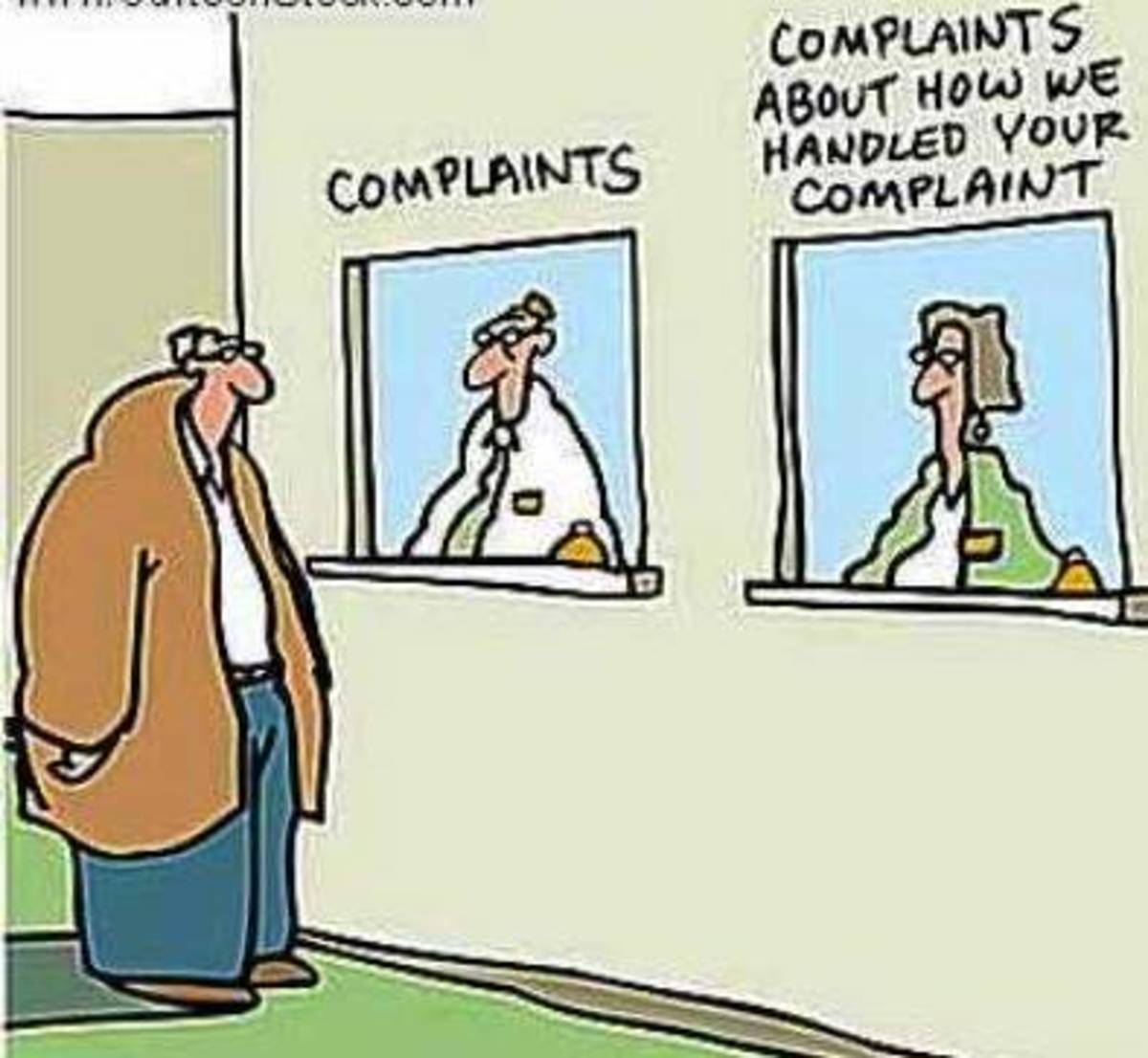What Does Customer Service Mean to You?
A Neighborhood Store

It is important to know what customer service means to you. Although, it might sound simplistic to say that customer service depends on your attitude toward the customer. However, if you really care about giving good service and wanting to serve your customers, good customer service will be somewhat a matter of intuition. If you don’t like the customers, chances are you will not please them. Customer service will be a natural result of really caring.
Many people are nostalgic for the days of the “Ma and Pa store.” I grew up in those days when such stores were in every neighborhood. They were mostly small grocery stores which most people could walk to and were owned by people who either lived in the back of the store or somewhere in the neighborhood. The customers were their friends and neighbors. In our neighborhood, the people across the street from us ran the hardware store a few blocks away. The local butcher lived half a block from us. Our next door neighbor was a retired factory owner whose factory was about three blocks away. Then with the advent of the GI bill people started moving to housing developments outside of the city. The shops were no longer as convenient and they had to drive somewhere to shop. By and large, the stores were impersonal and self-service, no longer friendly. They were not unfriendly, but not friendly either. As the owners of the neighborhood stores got older and sold. The new owners did not always have the same attitude toward the customers. They didn’t know the people and, seemingly, did not want to know them. You could still buy at these stores but it just wasn’t the same. What was missing was the personalism of the old owners without the advantages of the big stores. It appears to me that sometimes older people wanted a small business to bring in extra income and running a store looked easy to them. They did not understand that the years of serving the same customer, who were also friends and neighbors, was part of the business. It did not occur to them to get to know the customers. The new owners saw no reason to know the customers and the customers saw no reason to come back.
In the 1980’s I moved to a small town and commuted to work. Most people did and there were not very many local businesses left. The small stores in that town and those nearby seemed to have a very “could care less” attitude. For example, I would mention that we just moved into town and there was no response or else a disinterested “that’s nice.” Nobody said “Welcome to our town, I hope you like it here.” The response they gave was one that they didn’t care about me as either a customer or a neighbor. If they had given the other response it would have indicated that they did care and I would have been more likely to want to come back and do business with them. These are the kind of shopkeepers who complain that Wal-Mart if taking over the country. The sad part is that when a Walmart or other competition comes in, these stores do nothing to compete. It is as if they think it is your civic duty to buy from them. They town did have one exception. There was a grocer who understood his town and his market. He expanded his store, stocked it with the goods he knew the customers wanted. They would probably stock up on canned goods and such in the “cities’ but would buy bread, milk, meat and other fresh foods from him. He cared about his town and they cared about him.
Things have become more and more impersonal. When I first started driving, a service station was a place where an attendant pumped gas into your tank, checked your tires and oil and cleaned your windshield. Now if a station advertises “full service” it means someone will pump the gas for you.
Another thing that makes customer service bad is technology and the tendency to let technological systems run things for us instead of taking charge of our own customer relations. Instead of the old saying that “the customer is always right’ we assume that the computer, phone system or robot is always right. We all hate it when we are put on hold by an impersonal device and you waste ten minutes or longer going through the system of interacting with a non-human system in order to get to talk to a human. What I really hate is when they put me on hold I usually have to listen to some terrible music.
What is really sad is that nobody thinks to challenge the devices. An experience of mine while working as a collections correspondent for a corporation in the early days of computers may illustrate something I believe about customer service. At that time computers mostly handled money transactions. On credit accounts such as loans for home improvements and such the computer would send out about three late notices and if no payments were received the accounts were turned over to someone like myself. One account was given to me as a result of a letter from the customer saying that she had paid all her payments but we were still billing her for an amount of about $35.00. I looked through the file and there were several previous letters and letters from my co-workers telling her she owed the money and please pay the billed amount. I decided to look a little deeper and requested a print-out of the account. What I discovered was that when she made her first payment it was posted a day or two past the due date. When that happened the computer deducted a late payment from her payment leaving the account a dollar short. (Ever hear the saying “a day late and a dollar short?”). In those days customers usually had a coupon book for payment on an account. Each month, they would tear out a coupon and send it with a check to meet the payment. In her case the account was short for the late charges that had accrued each month and the computer would deduct another dollar from the next payment. When she sent in what she thought was the last payment she still owed the amount of all those late charges.
I figured the only real thing she might owe is the first dollar late charge and I was doubtful about that. I went to my supervisor and explained my thinking on it. He agreed with me and gave me permission to cancel the charges. I also wrote a letter to the customer explaining what had happened, apologized for the inconvenience and told her that she did not owe us anything further. With all of today’s talk of customer service, I am not sure that anyone would take the trouble today to find out what the customers problem really is, and then take appropriate steps to resolve it. If companies did do that, they might build good will and find they have more customers as a result.
All in all, I think customer service is somewhat in what you do and there are lists of thing one can do to help satisfy the customer. However, I think really caring about the people you do business with will usually lead to doing the right things intuitively.
Copyright 2012 Don Hoglund
© 2012 Don A. Hoglund








